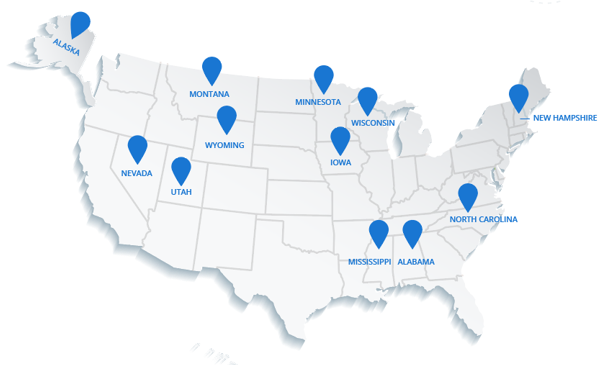If you are currently seeking psychiatric nurse practitioner opportunities, you can apply for jobs at DirectShifts. We have 42 open positions for PMHNPs in various states. Click on the links below to explore vacancies and apply.
- PMHNP job in New Jersey
- PMHNP job at Long Island, New York
- PMHNP per diem opportunity
- Remote PMHNP opportunity
- PMHNP jobs in New York
Psychiatric Mental Health Nurse Practitioners (PMHNPs) are Advanced Practice Registered Nurses (APRNs) who are licensed to assess and diagnose mental health conditions. They prescribe medicines, provide therapy and a range of services to care for patients suffering from mental health conditions. Since they receive specialized training on the diagnosis of medical disorders associated with psychiatric symptoms, they cannot be replaced by other APRNs.
The global pandemic has significantly increased the demand for PMHNPs in the country. In this article, we discuss the opportunities that lie ahead for PMHNPs to establish a flourishing career.
Scope of Practice for PMHNPs
Steps to Become a Psychiatric Nurse Practitioner:
In order to practice as a PMHNP, you will need to:
- Obtain a Bachelor of Science in Nursing (BSN) degree.
- Become an RN with an associate degree in nursing.
- If you are an RN already, complete an RN to BSN degree. This will help you get ready for the NCLEX exam and meet clinical requirements for licensure.
- Practice as a nurse in a mental health specialty.
- Pursue certification in Psychiatric Mental Health Nursing.
- Complete a Master of Science in Nursing or Doctor of Nursing Practice with a specialization in psychiatric mental health care.
- Pass the board certification exam for PMHNP. The PMHNP-BC credential is mandatory for psychiatric nurse practitioners and is valid for 5 years.
- Obtain a license as a nurse practitioner based on the licensing requirements of your state.
Sounds like a lot? Well, on average, PMHNPs have 12.8 years of experience, according to AANP.
So, what do PMHNPs do?
The responsibilities of psychiatric nurse practitioners include:
- Assessing physical and mental health conditions.
- Devising treatment plans.
- Providing psychotherapy.
- Prescribing medicines.
- Collaborating with patients and their families to explain health conditions and available treatment options.
- Helping patients adapt to medicines and treatments.
- Being updated about new medicines and treatment options.
- Working with communities to increase mental health awareness.
The individual responsibilities of a PMHNP may also vary based on their specialty, the patient's condition, and the setting. Some of the mental health conditions that PMHNPs help treat include:
- Addiction
- ADHD
- Anxiety
- Bipolar Disorder
- Depression
- Mood Disorders
- Panic Attacks
- Postpartum Depression
- PTSD
- Substance Abuse
- Schizophrenia
How is the scope for Psychiatric Nurse Practitioner Careers?
According to the National Institute of Mental Health, about 20% of adults in the US suffer from some form of mental illness. The problem is further compounded by a serious workforce shortage of mental health professionals such as therapists, PMHNPs, social workers, family counselors, etc.
However, since Registered Nurses (RNs) with an advanced degree, as mentioned earlier, can become Nurse Practitioners (NPs), and NPs in Washington DC and 21 states can open their own private practice, the field is likely to boom over the next few years. The Bureau of Labor Statistics projects that there may be 53,300 new nurse practitioner jobs by 2028, a whopping 28% increase as compared to the national average of 5% for all jobs.
The Psychiatric-Mental Health Nurse Practitioner Board Certification (PMHNP-BC) issued by the American Nurses Credentialing Center (ANCC) is the sole certification that NPs must obtain to practice as psychiatric nurse practitioners.
PMHNPs play a critical role in delivering treatment to patients affected by mental illnesses and helping them manage and overcome their conditions. They work in hospitals, clinics, and in private practice. While some PMHNPs manage their own practice based on the authority granted by their respective state, others work together with psychiatrists in group practice. PMHNPs work with large mental health organizations as well as independent service providers, within the facility or on-call. They also provide telemedicine services.
In this context, pursuing a career as a PMHNP can be a rewarding, alternate path in mental health care.
If you found this article insightful, subscribe to our blogs.
You may also be interested to read our article on PMHNP salaries by state.
December 9, 2021




Comments